The Importance of Early Intervention
Programmes for Autism
Key Points
- Early intervention for autism can start at 2 or 3 years old, focusing on communication, daily living, social, and learning skills.
- Starting intervention early, even before an autism diagnosis, improves outcomes in home, school, and community settings.
- Utilises neuroplasticity, especially important in the first 1000 days of a child’s life.
- The brain can adapt at any age, so intervention at any stage can significantly impact progress.
- Individualised support plans are developed with families, targeting developmental milestones through various strategies and therapies.
- Interventions include behavioural, developmental, communication, sensory-based, therapeutic, and family skills approaches.
- Involves a range of practitioners, including speech therapists, occupational therapists, and physiotherapists.
- What is early intervention for autism
- What do early intervention programmes offer?
- Why is early intervention important for autism?
- What are the benefits of early intervention for autism?
- What are the different types of early interventions for autism?
- Choosing an early intervention program for your child?
- What is available in Malaysia?
What is early intervention for autism?
Early intervention programmes (EIP) refer to therapies and supports that occur at or before preschool age, as early as 2 or 3 years of age. These services are also known as Early Childhood Intervention (ECI) or Early Childhood Early Intervention (ECEI).
For children with autism, early intervention aims to help them develop skills in communication, daily living, socialising, and learning. Developing these skills early improves their chances of success in various aspects of life including home, school, and community activities.
It’s best to start early intervention as soon as a child’s needs are recognised, even before an autism diagnosis is confirmed.
Early intervention can take place at home, childcare centres, schools, or community settings. It may include both individual and small group sessions.
What do early intervention programmes offer?
Early intervention services begin with an assessment of the child’s unique needs, strengths, and interests. Next, service providers will work with families to develop a personal support plan. This will focus on helping your child to reach specific goals and meet developmental milestones.
Families play a vital role in early intervention. Research has shown that when parents are actively involved, children tend to do better compared to programmes run only by educators or healthcare professionals.
Early intervention uses a mix of strategies, supports, and therapies, often including play-based activities. This approach is more fun for children and effective in teaching important life skills.
Early intervention programmes for autism should ideally be customised to address each child’s unique challenges and strengths. These programmes use a variety of methods to help each child achieve their individual goals, while also respecting their neurodivergent traits.
Why is early intervention important for autism?
Neuroplasticity is the brain’s capacity to change and adapt in response to learning and experiences. The first 1000 days of life are a critical period in terms of neuroplasticity, when the brain develops most rapidly and is most open to changes.
Therefore, early intervention in autism is critical.
However, our brain can change and adapt at any age. So, even if a child is diagnosed with autism when they’re older, getting help and support can still make a big difference in their outcomes.
Children with autism often face delays in developing skills in areas such as motor skills, communication and emotional regulation. This can make it harder for them to participate in school, social, and community activities. Early intervention works on these delays, encouraging healthy development and learning.
Young children naturally adapt and learn quickly. For example, children generally pick up new skills easily, like speaking or learning to play an instrument or sport without much effort. Early intervention focuses on this ability to learn quickly, helping children develop important skills and meet growth milestones.
What are the benefits of early intervention for autism?
Early intervention programmes help children gain the basic skills that they usually learn in the first 2 years of life, such as:
Physical Skills
Daily living skills
Motor skills
Feeding skills

Cognitive Skills
Ability to think
and learn

Social and
Emotional Skills
Ability to manage
emotions,
communicate with
others and form
relationships.

Behavioural
Ability to understand
and control their
behaviour in different
situations

Developing skills in these areas gives children with autism the best chance to transition into school and adolescence, live independently and build relationships as adults
Listen to the podcast “The Importance Of Early Intervention In Autism”
Listen to this Podcast @ BFM
What are the different types of early interventions for autism?
Early intervention programmes consist of various types of therapies and involve different professionals, such as speech therapists, occupational therapists, behaviour interventionists, clinical psychologists and special needs educators. You may not be able to access all these therapies in one place.
Children with autism often benefit from receiving different types of therapy at the same time. Some therapies combine techniques from various approaches, such as behavioural and developmental strategies, to support multiple areas of development at once.
For more information about specific types of therapies, please visit:
Choosing an early intervention program for your child?
Choosing an early intervention program for your child with autism can feel overwhelming.
Helpful questions to consider when choosing an early intervention program include:
- Does the therapy work? Is it recognised and known to be effective?
- Are the professionals we’ll be seeing suitably trained, qualified, and registered?
- Are there any risks of participating in therapy?
- What assessments are involved and how will my child’s progress be measured?
- Is the therapy delivered in a way that meets our family’s needs?
- How much will it cost and are there additional expenses, e.g., travel cost?
- How much time will it take?
- What are my expectations about my involvement in the intervention?
- How long will we have to wait to get started?
For more guidance for choosing types of early intervention, please visit:
What is available in Malaysia?
There are a variety of early intervention services in Malaysia, ranging from government facilities to private centres and non-profit NGO centres.
In the government setting, some services are offered through the Department of Social Welfare’s Community Rehabilitation
Program, “Program Pemulihan Dalam Komuniti” (PDK) and the Ministry of Education’s Special Education Service Centres, “Pusat Perkhidmatan Pendidikan Khas” (3PK).
For more guidance for choosing types of early intervention, please visit:
In addition, there are many private centres and non-profit centres run by NGOs or private companies. Please note that your child may require therapies from individual practitioners, such as speech therapists and occupational therapists, who may be in hospitals or clinics, rather than under a one-stop centre.
For a directory of available services, the following sites are useful starting points.
Malaysian parents of children with special needs have also started several Facebook groups which can
be useful resources of information about available services to support your child.
- Malaysia Autism Parents Support Group & Special Needs (MAPSG)
- Johor Bahru Angel Heart Family 新山天使心家族
- 南马特别孩子关怀协会(南特)[Southern Malaysia Special Child Care Association (Nantes)
Persatuan Penyayang Kanak-kanak Istimewa Johor Bahru] Facebook group

